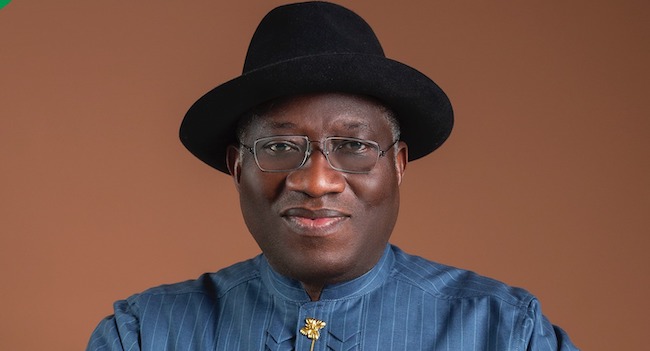Former Nigerian President, Goodluck Jonathan has never hidden his belief that leadership is less about power and more about responsibility. In a candid reflection on his journey from the creeks of the Niger Delta to the highest office in the land, Jonathan stressed that humility, patience, and service are the bedrock of governance.
“I was not born with a silver spoon. I grew from the gutter, in a rural setting. By divine providence, Nigerians voted for me to become their president,” he said. “That humbles you and gives you patience to listen to people, to diagnose issues properly before taking decisions.”
YOU CAN ALSO READ: Redefining Wealth and Leadership – The Story of Nimi Akinkugbe
Jonathan explained that his modest background shaped the way he approached leadership. Having grown up without privilege, he was deeply aware of the need to create space for others to rise. “If you see the next child or the next person, even if that person is still low, you should know that if you are able to get up from that level to the peak, that child too can get to the peak,” he reflected.
As president, Jonathan adopted a leadership style that welcomed criticism and scrutiny. He viewed governance as a collaborative process rather than a top-down directive. “In my cabinet, I expected everyone to interrogate issues clearly. Even when I had taken a decision on a memo, it would still come to council for ratification. Sometimes ministers would tear a memo apart, and that helped improve the quality of governance,” he explained. For Jonathan, inclusivity was not just political rhetoric, it was practical governance. He believed that dissent, debate, and questioning within his administration strengthened democracy and reduced errors in policy-making.
Jonathan also acknowledged that leadership often demands making difficult, even painful, decisions. “Taking decisions as a president is always complicated because they affect not only you but many people your ethnic group, your faith, and your supporters,” he said. The defining example, he noted, came during the 2015 general elections, when Nigeria stood on the edge of political violence. Rather than allow his ambition to fuel bloodshed, Jonathan chose to concede defeat.
“My political ambition was not worth the blood of any Nigerian. That is why I called General Buhari to congratulate him even before the final announcement. Leadership is not about holding on to power at all costs. It is about protecting the stability of your country,” he explained. Looking back, Jonathan said Nigerians appreciated that decision even more with time. “The real question is not whether you became president, but what you left behind. Today, Nigerians even appreciate me more for that decision than when I was in office,” he added.
Jonathan was equally blunt about the role of greed in undermining governance across Africa. “The greatest problem in many of our countries is greed. Corruption for survival is bad, but greed stealing what you cannot even spend is worse,” he said. He emphasized that the real challenge lies not only with leaders but also with citizens who reinforce unhealthy patterns. “Unfortunately, in Africa, citizens often reinforce hero worship because survival is tied to government patronage. I completely reject that. I hate hero worship,” Jonathan declared.
YOU CAN ALSO READ: Faith, Finance, and Future of Africa: Inside Okechukwu Enelamah’s Investment Vision
Even so, he maintained that efforts were made under his administration to create transparency and accountability. “No leader can eradicate corruption completely, but you can reduce it to a level that doesn’t cripple society. That is why I signed the Freedom of Information Bill, to give journalists and civil society access to government records. Someone who wants to steal wouldn’t do that,” he explained.
Jonathan believes that for Africa to truly progress, nations must reduce dependence on raw exports and focus on industrialisation. “Africa is rich in resources but poor because we don’t add value to what we produce. We export raw materials and create jobs for others instead of processing them ourselves,” he said. He pointed to Nigeria’s push for private refineries and agricultural reforms as examples of efforts to add value and create jobs.
“That is why we encouraged private refineries like Dangote’s, so the country would stop importing fuel. We also pushed agriculture aggressively, which helped Akinwumi Adesina become President of the African Development Bank,” Jonathan recalled. For him, the fight against corruption and the challenge of governance cannot be separated from economic growth. “The fight against corruption must go hand in hand with creating opportunities for people. Otherwise, poverty and patronage will continue to drive corruption and hero worship,” he concluded.










